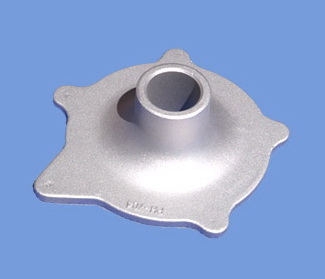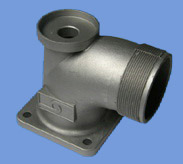Aluminium Die Casting: A Comprehensive Guide to Manufacturing Excellence
Aluminium die casting is a highly efficient and widely utilized manufacturing process that has revolutionized various industries. With its numerous advantages and diverse applications, this technique has become indispensable in the production of complex metal parts. In this article, we will delve into the intricacies of aluminium die casting, exploring the process, its advantages, applications, design considerations, quality control measures, environmental aspects, and future trends.
Process of Aluminium Die Casting
Aluminium die casting involves a well-defined set of steps to ensure precise and consistent results. It begins with the preparation and lubrication of the die, followed by the melting and pouring of molten aluminium. The injection of the liquid metal into the die, solidification, and subsequent cooling leads to the formation of the desired casting. Finally, the casting is ejected from the die, ready for further processing.
Types of Aluminium Die Casting
There are three primary types of aluminium die casting: hot chamber die casting, cold chamber die casting, and semi-solid die casting. Hot chamber die casting is suitable for alloys with low melting points, while cold chamber die casting is preferred for alloys with higher melting points. Semi-solid die casting combines aspects of both processes, offering enhanced mechanical properties and reduced porosity.
Advantages of Aluminium Die Casting
The advantages of aluminium die casting are manifold. Firstly, it boasts high production efficiency, allowing for rapid manufacturing cycles. Additionally, aluminium die casting delivers exceptional dimensional accuracy, ensuring precise and consistent parts. The process also enables the production of complex geometries and thin walls, expanding design possibilities. Moreover, aluminium die castings are lightweight yet possess impressive strength, making them ideal for weight-sensitive applications. Furthermore, the process provides excellent surface finishes, reducing the need for secondary operations. Lastly, aluminium die casting is cost-effective, enabling manufacturers to achieve remarkable economies of scale.
Applications of Aluminium Die Casting
The versatility of aluminium die casting is evident in its widespread applications across various industries. In the automotive industry, it is extensively used for engine components, transmission housings, and structural parts. The aerospace sector relies on aluminium die castings for aircraft components, ensuring strength and weight reduction. In the electronics and electrical industry, die castings serve as heat sinks, connectors, and enclosures. Consumer goods, appliances, industrial machinery, and countless other sectors benefit from the precision and durability of aluminium die castings.
Design Considerations for Aluminium Die Casting
Successful aluminium die casting requires careful design considerations. Factors such as wall thickness and draft angles influence the ease of part ejection and minimize defects. Incorporating undercuts and core pullers allows for the production of intricate shapes. Ribs and fillets enhance structural integrity, while the parting line and ejection system determine the manufacturing process’s efficiency. Moreover, material selection and alloy properties play a crucial role in achieving desired mechanical characteristics.
Quality Control in Aluminium Die Casting
To ensure the highest quality standards, stringent quality control measures are employed in aluminium die casting. Inspection and testing techniques, including visual inspection, dimensional checks, and non-destructive testing, are performed to identify any defects or deviations. With proper process monitoring and optimization, manufacturers can detect and rectify issues promptly, ensuring consistent and defect-free castings.
Environmental and Sustainability Aspects
Aluminium die casting aligns with environmental sustainability goals. Aluminium is highly recyclable, and the die casting process facilitates the reuse of scrap and excess material, reducing waste. Additionally, die casting operations can be optimized for energy efficiency, minimizing carbon emissions. By adopting proper waste management practices, such as recycling coolant and controlling emissions, the environmental impact can be further reduced.
Future Trends and Innovations in Aluminium Die Casting
The future of aluminium die casting holds exciting prospects. Advanced casting technologies, such as vacuum-assisted die casting and high-pressure die casting, are being developed to improve casting quality and productivity. Simulation and modeling tools enable manufacturers to optimize designs and predict casting behavior before production, saving time and resources. Lightweighting strategies, including the use of hybrid materials and innovative geometries, are gaining traction to meet stringent fuel efficiency and emission regulations. Additionally, ongoing research focuses on developing new aluminium alloys with enhanced properties, such as improved heat resistance and corrosion resistance.
Looking for a reliable and efficient aluminum die casting manufacturer? Look no further than CNM China die casting company! With over 18 years of experience, we specialize in die casting aluminum, magnesium die casting, and zinc die casting products, as well as machining parts, metal stamping, and plastic molds making.
Our advanced equipment and machinery ensure that we produce the highest quality and cost-effective die casting solutions. From flow meter housing and valves to lighting fixture parts, automobile parts, and decorative hardware, we can manufacture a wide range of products to meet your needs.
Our team of professional engineers and mold designers are always ready to take on new projects. Simply send us your 3D part design in STP or IGS format, and we will get back to you within 24 hours with pricing details.
Exporting various aluminum die casting, zinc die casting, and magnesium casting products, CNM Tech is the go-to manufacturer for all your die casting needs. Contact us now to experience our exceptional services and premium quality products at affordable prices!
Conclusion
Aluminium die casting is a versatile and efficient manufacturing process that has revolutionized industries with its advantages and applications. The process offers high production efficiency, dimensional accuracy, complex geometries, lightweight yet strong properties, excellent surface finishes, and cost-effectiveness. It finds applications in automotive, aerospace, electronics, and various other industries. Careful design considerations and quality control measures ensure successful casting outcomes. Moreover, the process aligns with environmental sustainability goals through recycling and energy efficiency. As advancements continue, the future of aluminium die casting holds promising innovations in technology, simulation tools, lightweighting strategies, and alloy development.
In conclusion, aluminium die casting is a cornerstone of modern manufacturing, enabling the production of intricate and high-quality metal parts. Its continued advancements and widespread adoption contribute to the growth and success of industries worldwide.
